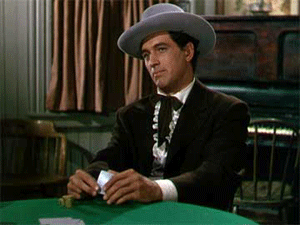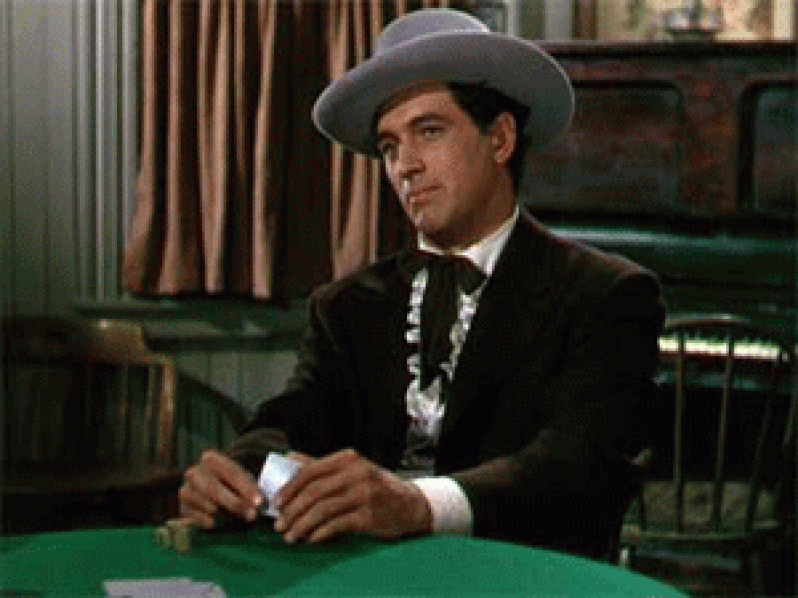IT SEEMS often apparent that when an actor or actress transfers his or her life experiences to roles bearing similarity, a genuine and memorable body of films emerge. The actor/actress also becomes noticed by serious film viewers as a portrayer of certain character traits repeatedly, but not in a predictable or boring fashion. Roy Fitzgerald came from a broken home very early in life; had to adjust to a stepfather, whose name he took; and grew up like a poor working-class youth doing several  proletarian jobs, including truck driving. Acting was encouraged out of him by very patient studio guides, who no doubt noticed his dormant physical attractiveness and mental potential for roles spanning adventure, pioneering, being various professionals, wealthy men, military men, colonist, romantic bachelor, husband, etc, and after classes in various physical and communicative skills, he was given the name Rock Hudson.
proletarian jobs, including truck driving. Acting was encouraged out of him by very patient studio guides, who no doubt noticed his dormant physical attractiveness and mental potential for roles spanning adventure, pioneering, being various professionals, wealthy men, military men, colonist, romantic bachelor, husband, etc, and after classes in various physical and communicative skills, he was given the name Rock Hudson.
Rock’s first Westerns
A terrible actor at first, who wasted time and money with too many forgotten lines and re-takes, Hudson began to shine from 1952 in Westerns, one of the best of which was ‘BEND OF THE RIVER’, an unforgettable Hollywood masterpiece, directed by Anthony Mann, rightly considered a major director of other masterpiece Westerns like ‘WINCHESTER 73’ (1950); ‘THE NAKED SPUR’ (1953); ‘THE MAN FROM LARAMIE’ and ‘THE FAR COUNTRY’ (1955); ‘THE LAST FRONTIER’ (1956); and ‘MAN OF THE WEST’ (1958).
Hudson’s is only a supporting role emerging in the middle of ‘Bend of the River’ alongside the two lead actors, James Stewart and Arthur Kennedy; but it is a beautiful and vital role which suited his emerging screen persona.
Mann’s perception
It is director, Anthony Mann we have to thank for first perceiving something of the future Rock Hudson’s value as an actor who will deliver some of the best values of man, and first demonstrates it in ‘Bend of the River’ of 1952.
The importance of this film exists both as a geographical/social and moral value far beyond the specific North American ‘Wild West’ frontier where the film is based. Its story of two men (Stewart and Kennedy) of dubious background who get a second chance to break-away from their wayward past by leading a party of pioneers towards a distant but favourable virgin territory way inland from a riverside town and community develops into a microcosm of human conflict born of competition for land, its products, foodstuff, and jobs.
The divergent roles of Stewart, who keeps to the difficult and frugal pioneering path of getting the settlers to their distant Promised Land, and Kennedy, who decides to remain at the riverside town and drifts back into criminal opportunities as the supporter of a scheme which intends to block and usurp the pioneer development plan of Stewart’s party, defines an underlying motivation for repetitive conflicts worldwide.
Hudson’s role
Hudson appears as a suave, quiet, dapper gambler, a dandy who keeps to himself and revels only in his individuality, but for whom playing his cards right extends into making a correct moral choice when the opportunity arises.
This occurs when he sees Stewart becoming the victim of injustice and lends his skills to making his project succeed. Hudson’s role in ‘Bend of the River’ actually represents the individual who, by being free of attachment to an a priori ideology, or an already compromised social or professional position, remains open to seeing and choosing the right moral side as the occasion arises.
This uncontaminated and flexible immediate position is the individualistic basis of authentic existential American culture, in comparison to its ongoing transplanting of separate ethnic heritages, whether from Native or Latin America, Europe, Africa, India, China, Japan the Middle East, etc, which in America acts as prepackaged catalyst cultures.
The international success of classic Hollywood was based on this pragmatic, free, and immediate definition of culture, which Hudson’s film role in ‘Bend of the River’ demonstrates.



.jpg)








